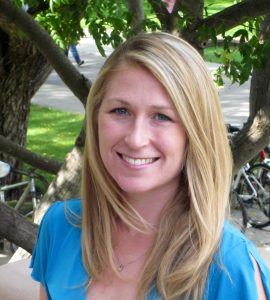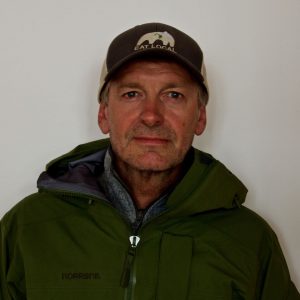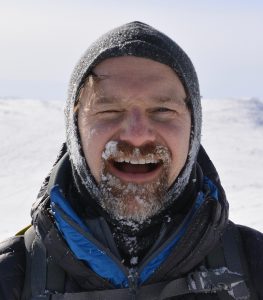Beyond risk and thrill: Rethinking adventure in terms of psychological well-being
Dr. Susan Houge Mackenzie
Engaging in adventure experiences has traditionally been framed in terms of hedonism, such as risk or thrill-seeking. However, recent investigations of adventure suggest that eudaimonic participation motives and outcomes may play a larger role. A range of adventure outcomes, including positive life transformations, enhanced resilience and quality of life, emotional regulation, eco-centric perspectives, and improved relationships, demonstrate that engaging in these activities promotes psychological well-being. In addition to the traditional focus on risk and thrill, adventure scholarship lacks theoretical consensus regarding the mechanisms through which well-being benefits are achieved. In essence, scholars and practitioners generally agree that it ‘works’, but lack consensus as to why. This talk will explore promising psychological models that may help integrate current findings in adventure literature by identifying key psychological mechanisms that underpin diverse outcomes. The significance of rethinking adventure in terms of psychological well-being constructs will also be discussed in relation to policy, research, and adventure practices in diverse contexts. Rethinking adventure may not only help change popular perceptions of adventure, it also has the potential to: improve the accessibility of adventure for broader populations; offer novel means of improving public health; promote safer adventure practices; and enhance the quality and scope of adventure research.

Can adventure tourism play a vital role in conserving biodiversity and natural heritage if sustainably managed? A case study: The Chiquibul Maya Mountain Massif of Belize
Mr. Neil Rogers
Stunning landscapes, rich biodiversity and natural heritage are often primary reasons why adventure tourists visit destinations. Adventure tourism can play an important and positive role if sustainably managed in fragile zones, not only helping to conserve and preserve biodiversity, but also generating revenue as an alternative livelihood for local communities.
Belize as a tourism destination is booming with the international airport now working to full capacity, overnight tourism arrivals for 2017 exceeding 400,000 visitors for the first time and cruise ship visitors in 2017 exceeding 1 million per year and growing. At the very heart of Belize lies the Chiquibul Maya Mountain Massif (CM3) a 1.25 million-acre belt of forest spanning 14 protected areas and accounting for 22.2% of Belize’s land mass. The CM3 is part of the Maya Forest of Mexico, Guatemala and Belize and forms the largest intact block of tropical broadleaf forest north of the Amazon.
Illegal extractive activities coupled to climate change, hydroelectric development, agricultural expansion and gold mining pose a grave threat to its biodiversity and high value ecosystem services. Without significant multi-partner interventions these threats will have far reaching consequences for Belize, its communities, the Belize Barrier Reef Reserve System and its tourism sector. This talk will discuss why adventure tourism and its stakeholders must do more in helping the CM3’s managers to protect and preserve its biodiversity through support for sustainable tourism, alternative livelihood strategies (including cross border initiatives), thematic guide training, community based environmental education, citizen science, philanthropy and storytelling.
Neil Rogers is a Stockholm based tourism consultant with over 30 years of experience working in the adventure tourism industry. He’s held senior positions for leading brands such as Journey Latin America, International Expeditions Inc., the Lodge at Chaa Creek and Francis Ford Coppola Resorts. He is currently an advisor to the Norwegian Centres of Expertise Tourism (NCE) Fjord Norway, a cluster that develops and tests new tourism products, and connects buyers and suppliers to the resulting adventure products. He’s a board member of the Adventure Travel Conservation Fund / ATCF, past Chair of the Destinations Working Group at the Global Sustainable Tourism Council / GSTC, has been a member of the Belize Tourism Board’s Marketing Advisory Committee and has served as a judge for the WTTC’s Tourism for Tomorrow Awards on several occasions. He has a passion for conserving Belize’s last wild places and has spent the last 30 years exploring the remotest reaches of Belize’s Chiquibul Forest and Maya Mountain Massif. In 2016 Neil was commissioned by Belize’s Protected Areas Conservation Trust / PACT to write the Tourism Enterprise Development Plan for the Chiquibul Forest.

Adventures in 21st century society
Dr. Simon Beames
Three central societal issues persist as we explore notions of adventure and leisure in the 21st century. The first centres on the environmental costs associated with outdoor equipment manufacture and air travel, and the implications these have for global society. The second issue concerns the humanitarian side of adventure practices, especially the degree to which dominant concepts of adventure can offer something to all humans, without causing harm to certain ‘others’. Finally, the extent to which it is possible to find sustainable, ‘authentic adventures’ that are unfettered by broader societal structures and belief systems are considered. Interrogating the complex world of adventure requires the employing inter-related analytical lenses, such as identity, capitalism and sustainability, in order to work towards the UN SDGs in a socially and environmentally just way. This talk aims to elicit conversations about how we can critically understand the ecological and human costs of our adventure practices, and thus provoke innovative thinking about how we can have ‘morally excellent’ adventures.

Simon Beames is senior lecturer at the Moray House School of Education. He has worked as an outdoor instructor in North America, Asia, and Europe for more than 25 years, and has published five books: Understanding educational expeditions, Learning outside the classroom, Outdoor adventure and social theory, Adventurous learning, and, most recently, Adventure and society.
